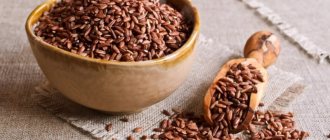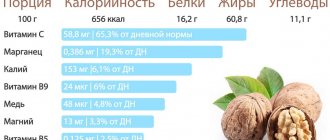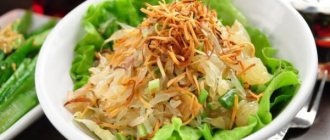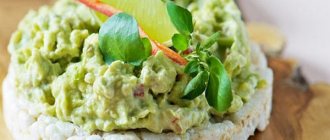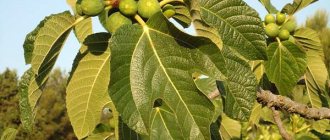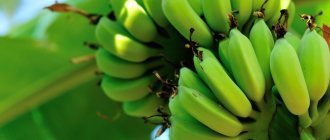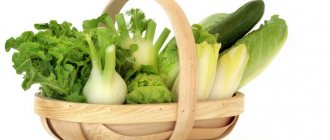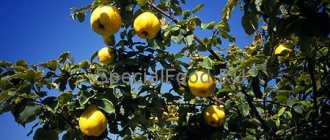Chemical and vitamin composition of kiwi
The fruit contains almost all groups of vitamins, macro and microelements, amino acids and other antioxidants.
List of essential vitamins:
- Kiwis are high in vitamin C – 93 mg. To obtain the daily norm of ascorbic acid, it is enough to consume just one fruit, which will protect the body from various viruses and pathogenic bacteria.
- Vitamins A and E are responsible for the condition of skin, hair and nails.
- B vitamins help preserve vision and promote proper fetal development in pregnant women.
Micro and macroelements:
- Potassium, magnesium and iron are necessary for the proper functioning of the cardiovascular system;
- Calcium and phosphorus have an anti-inflammatory effect and provide bone tissue with strength and endurance. They also have a positive effect on brain and mental activity;
- Sodium is responsible for the balance of water and salt in the body;
- Chlorine, aluminum and sulfur remove toxins from the body, protect against allergic reactions, maintain the health and flexibility of joint tissues, and ensure proper functioning of the gastrointestinal tract.
- Zinc, iodine, copper and manganese are responsible for hormonal balance, promote tissue regeneration and healing, and reduce the risks of thyroid diseases.
In addition, the fruits contain various types of fruit sugar, amino acids with strong antioxidant effects and vegetable protein.
Calorie content of kiwi
Due to the large amount of dietary fiber and pectin, kiwi is absorbed in the body for a long time, causing a feeling of fullness. And with its small calorie content, only 47 kcal. for 100g. product, this delicious fruit is an invariable participant in dietary nutrition.
If we take into account that the weight of an average fruit is only 70 to 80 grams, then the calorie content of one such fruit will not exceed 35 kcal. Such indicators allow you to snack on kiwi fruits at any time of the day, without thinking about the consequences in the form of excess weight.
Signs of excess vitamin C
You cannot exceed the recommended level of ascorbic acid in the body, since this is also harmful to human health.
Hypervitaminosis of ascorbic acid is manifested by the following unpleasant symptoms:
- cramps in the stomach;
- severe heartburn;
- nausea and vomiting occurring literally every 30 minutes;
- dizziness that does not go away even after the position has been changed to horizontal;
- weakness and chronic fatigue, but at the same time showing signs of insomnia;
- migraine attacks;
- skin rash;
- diarrhea or constipation.
In children, an overdose of ascorbic acid is manifested by redness of the skin and severe itching. Also, in young patients, nervous excitability increases noticeably, which can even develop into aggressive reactions.
Properties of kiwi for a woman’s body
It is important for any woman to always be attractive and beautiful. Quite a high content of vitamin E in kiwi will help maintain youth, skin elasticity, and the beauty of nails and hair.
This unusual fruit will help you avoid sudden hormonal surges, which can cause depression and emotional breakdowns. B vitamins and the substance serotonin, which are found in large quantities in kiwi, are responsible for the stable state of the nervous system.
For women whose menstrual bleeding is painful, these fruits can be a life-saving solution. It is enough to eat only 2-3 fruits a day to get rid of unpleasant and painful sensations.
For pregnant women, fruit is the main supplier of essential vitamins, minerals and other beneficial substances that are responsible both for the condition of the expectant mother and for the proper development of the child.
Kiwis are good for women who are at risk of miscarriage. And the folic acid they contain helps prevent the loss of a child. To alleviate toxicosis during pregnancy, kiwi will also help.
Expectant mothers often face the problem of constipation. And the use of medications to help solve this delicate problem during this period is not advisable. Kiwi fruits contain substances that will help to get rid of constipation gently and painlessly, without threatening the health of the woman and baby.
The fruit, rich in various vitamins and substances, will help restore strength to nursing women.
Important! It is necessary to remember about the allergic reaction that milk can cause in the baby if the mother consumed this fruit.
Therefore, a nursing woman should introduce kiwi into her diet with great caution. And, of course, kiwis are an indispensable dietary food. With the help of these unusual fruits, every woman can significantly change her weight and improve her figure. A diet based on them will lift your mood and improve your health.
Why is it useful?
Kiwis have a preventive and therapeutic effect on the human body for many diseases and ailments:
- prevent the formation of stones and sand in the genitourinary system. The many micro and macroelements contained in the fruits are responsible for this, and remove unnecessary salt deposits from the body;
- fruit juice regulates sugar levels in the body, helping to maintain levels at the desired level;
- for inflammatory processes of the pulmonary and bronchial systems, the pulp of this fruit serves as an emollient and expectorant;
- provides support for the functioning of the cardiovascular system, normalizes blood pressure, thins the blood and is a good remedy for the prevention of hypertension and thrombosis;
- for colds, vitamin C contained in fruits supports the immune system and helps reduce high fever;
- are an excellent preventive and therapeutic agent for eye diseases;
- help get rid of excess weight;
- assist in the proper functioning of the gastrointestinal tract.
Important! Due to the high content of amino acids and antioxidants, the fruit is a good remedy in the fight against cancer, and after courses of chemotherapy, it helps to quickly remove harmful and dangerous substances from the body.
And in the perfumery and cosmetics industry, extracts from the plant are used to make masks, creams, lotions and perfumes. And these are not all the useful and important properties that tasty and unusual fruits have.
Harm and contraindications
Although this exotic delicacy has proven its beneficial properties throughout the world, it must be taken into account that it may also have side effects. Some diseases do not allow the inclusion of kiwi in the diet.
When not to eat kiwi:
- For peptic ulcers and chronic gastritis;
- In case of renal failure;
- Frequent diarrhea, disorders of the gastrointestinal tract;
- Acute diseases of the genitourinary system;
- Asthmatic and allergic diseases.
If you have an individual food intolerance, you need to carefully introduce kiwi into your diet. And at the first allergic symptoms, you need to give up the fruit.
The benefits and harms of kiwi on an empty stomach in the morning
Before eating kiwi in the morning on an empty stomach, you need to pay attention to one factor. The possibility of eating the fruit directly depends on the acidic environment of the stomach. So, if a person has normal or high acidity, then he can get heartburn.
If the acidity of the stomach is low, then you can safely eat kiwi, as it will have the opposite effect and compensate for the low pH. It is also useful to eat the fruit in the morning for those people who suffer from constipation. Like other berries and fruits, kiwi stimulates intestinal motility and helps get rid of this scourge. To achieve maximum effect, you can consume kiwi with baked milk.
How to choose ripe kiwi?
In order not to be disappointed in the taste of your favorite fruit, you need to know a few tricks that will help you choose a tasty and ripe fruit.
- Ripe fruit should be soft. To determine ripeness, you need to squeeze it a little with your fingers. If the kiwi is easy to press, then it is ripe and juicy. But the hardness of the fruit most likely indicates that it was not allowed to ripen.
- The smell of a ripe fruit should be citrusy.
- A dense and smooth peel indicates proper storage and transportation of the fruit;
- The fruit with wrinkled and flabby skin has lost its moisture and is not suitable for food.
- In color, different varieties of kiwi may differ. But the most common fruit in our stores should have a uniform, brown color.
- Uneven color and damaged skin of the fruit indicate that the fruit is overripe or spoiled and is not suitable for food.
Using these simple tips, only ripe and juicy fruits of your favorite delicacy will always be on your table.
How to get the most benefit
Kiwis can be stored for a long time, so it is recommended to eat them fresh whenever possible. Many useful substances are destroyed not only during heat treatment, but also under the influence of air. Therefore, fruits should be peeled immediately before consumption. The best way to eat them is whole, pitted, without cutting into slices. Nutritionists advise peeling the skin as thinly as possible to preserve all the vitamins inside. It is advisable to combine fruits with other fruits, berries, vegetables or meat. Not recommended: with dairy products and sweets.
How to clean properly
Kiwi fruits have long been tasted and appreciated in many countries around the world. But not everyone knows how to properly peel this exotic fruit. But there are several ways that will help you quickly peel this fruit without losing the juicy pulp.
- Using a vegetable peeler, the peel will be removed in a thin layer without affecting the juicy pulp. To do this, the fruit is squeezed in your hand and pressed against the peeler blade.
- The fruits are placed in boiling water for a few seconds. After this, the skin is easily removed, but some beneficial properties are lost.
- Trim the fruit on both sides and carefully place a teaspoon under the skin. Carefully moving the fruit in a circle, the pulp is freed from the peel. Cut the skin and remove the juicy fruit.
Before peeling the fruit, you must rinse it thoroughly under running water.
Why you should eat kiwi with peel
According to research, the skin of this fruit is even healthier than the pulp, and here's why:
- It is also rich in vitamin C, which improves the immune system and slows down the aging process. Its amount in the peel is even higher than in orange or lemon fruits.
- It contains one third more folic acid than pulp, and it is responsible for performance, improves blood circulation and is very useful during pregnancy, as it helps prevent the development of neural tube defects in the fetus.
- The peel is very rich in fiber (50% more than in the pulp), which means that without peeling the fruit, you will get the maximum amount of it.
- It has been proven that the peel helps get rid of dysbacteriosis and staphylococcus.
How and how many times a day can you eat fruit?
Most varieties of kiwi have fluffy skin, which, by the way, contains the largest concentration of vitamins and nutrients. That is why many nutritionists recommend eating the delicious fruit without peeling it.
For a more pleasant perception of the fruit, the skin can be removed from the hairs under strong pressure of water or using a knife. But if the skin of the fruit turns out to be too thick and dense, then you can fill it with mineral water and leave it for several hours. The skin of the fruit will become soft and juicy.
But if the skin option is not suitable, then the peeled fruit will definitely bring a lot of pleasure. In this case, you need to either peel it or cut it in half and eat it with a teaspoon. The best time to take a vitamin bomb is about half an hour before meals.
But if you didn’t manage to consume it on time, then wait a little and eat kiwi after eating. In this case, the fruit will help digest heavy foods, and discomfort after a heavy meal will not bother you.
But you shouldn’t overuse juicy fruits. Just one fruit a day can provide the body with the most essential vitamins and substances. The daily share should not exceed 3-4 fruits.
Important! Kiwi fruits contain a large amount of vitamin C, so exceeding the recommended daily dose can lead to the development of hypervitaminosis.
The juicy fruit with emerald flesh makes delicious desserts and drinks. Also, kiwi is added to salads, to which the fruit gives not only aesthetic beauty, but a bright, rich taste.
Contraindications
People with stomach problems (high acidity, peptic ulcer, gastritis) should avoid eating the fruit. Diseases of the excretory system may also be a contraindication, because kiwi contains a large amount of water and oxalates.
Individual intolerance is another contraindication. The fruit contains the enzyme actinidin, which is a strong allergen. You can identify the presence of allergies yourself.
Symptoms occur immediately after eating green pulp. This is inflammation and itching of the mucous membranes of the throat and oral cavity, nausea, “swelling” of the tongue, redness of the skin.
Features of the use of kiwi in cosmetology
The beneficial properties of the exotic fruit are used by cosmetologists and perfumers of the world's most famous brands. Tonics, balms, creams, sunscreens, shampoos and masks with the addition of kiwi have a rejuvenating and tonic effect, so they are very popular.
At home, you can use the peel of the fruit yourself by rubbing it on your face and hands. A drop of fruit juice added to low-fat yogurt or honey will replace an expensive anti-aging mask.
Fasting days
Do you urgently need to tighten your tummy or reduce your waist size? Are you preparing for an important corporate event? In this case, a fasting day on kiwi will help you.
- The principle of its implementation is to consume 1 kg. green fruits during the day. Fruits can be divided into 8 meals.
- It is strictly forbidden to eat any other food and drink teas and juices.
- During fasting, you can prepare a smoothie or cocktail with kiwi and kefir for weight loss, but only once for breakfast or dinner.
- A prerequisite for a weight loss day is sufficient fluid intake. The fact is that green gooseberries create an acidic environment in the body, and water is needed to normalize the natural environment. A sufficient volume is 2 liters per day. It is best to use purified still water.
In addition to the benefits for weight loss, a fasting day will cleanse the intestines and tidy up the digestive system. In addition, it normalizes the functioning of the kidneys and liver.
How to store kiwi at home
If you buy unripe kiwi fruits, you shouldn’t be upset, because this fruit ripens perfectly at home. To do this, you do not need to put it in the refrigerator. At room temperature, the fruits will ripen quickly and can be eaten.
Ripe fruits are stored for no more than 5 days, but if they are placed in a drawer for vegetables and fruits in the refrigerator, the shelf life increases to 2 weeks.
To ensure proper storage of fruit you need to know:
- The fruit must not be bruised or damaged.
- There should be constant air access to the fruit, so there is no need to pack them in bags.
- It is forbidden to wash fruits that are planned to be stored for a long time.
- There should be no foreign odors in the refrigerator; kiwis are able to absorb foreign aromas.
Many housewives freeze the fruits, but it must be remembered that in this form, kiwi loses most of its useful and important components for the body. Do not deny yourself the pleasure of living a beautiful and healthy life, and juicy, tasty and healthy kiwi fruits will help with this.
Distinctive features
The first name of the fruit, Chinese gooseberry, was not assigned to kiwi. Although it was grown in northern China. Kiwi fruit first arrived in New Zealand in the early 20th century. The fruits of the plant began to be named after the bird that lives in this country, and which is considered its national symbol.
Where does this tropical fruit grow nowadays? Kiwi is grown on a large scale in Japan, the USA, Chile, as well as in France, Italy and Greece.
What type of plant does it belong to? For berries or fruits? In fact, kiwi is a berry that grows on exotic tree-like vines. The fruits come in two varieties: green and golden. Their flesh is usually yellow or green with small black seeds that are arranged in an oval pattern. The smell of kiwi is reminiscent of strawberries, and its unique taste is like a mixture of different fruits.

